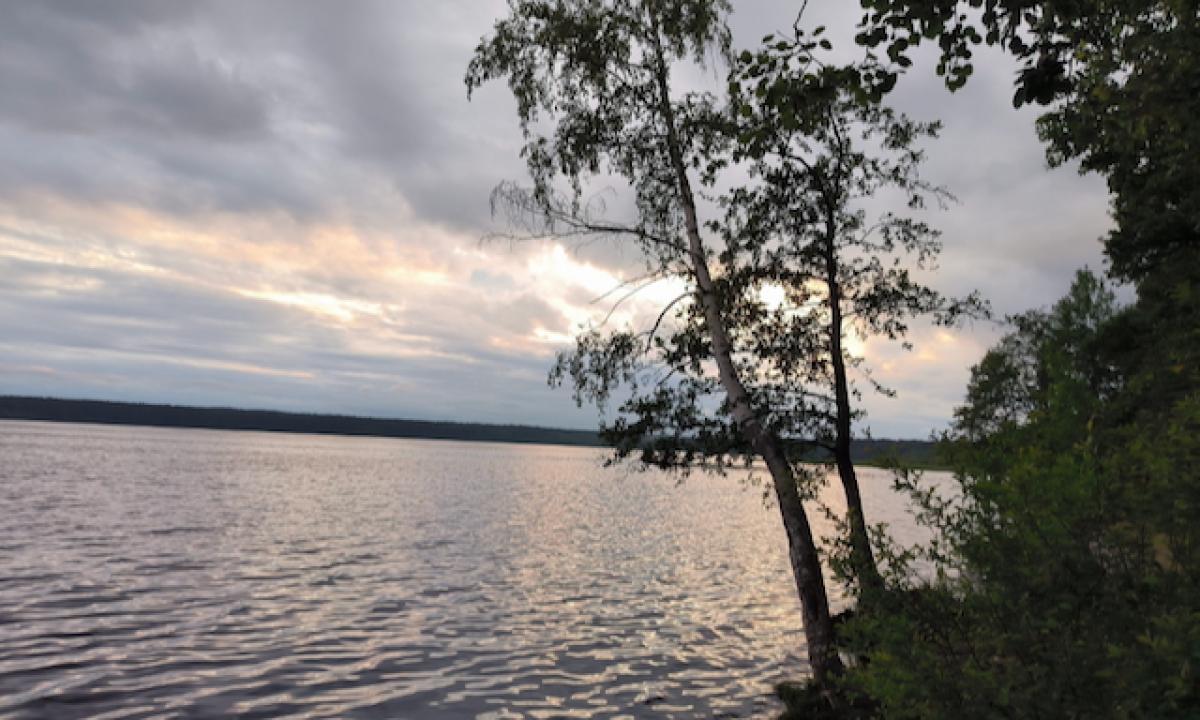
Never come Peace
In mid-June, I set off on a journey to Russia to visit friends in St. Petersburg, Moscow and Karelia. It was essentially a private trip, although my publisher in Moscow organized two events for me and some interviews with the Russian press. Half a year ago, Gnosis, which goes its own way, independent from the state, had translated and published my report „On both Sides of the Frontline“, and I was curious to learn what Russian readers and media would say about it. But also other issues were at stake.
If you believe the German press, this was a journey into the heart of darkness, into the center of evil, the origin of the Ukraine war, and to the realm of the devil reincarnate, a mastermind named Vladimir Putin and his blood-thirsty followers. But the first surprise was: wherever I showed up, Russian people were friendly, polite, helpful and showed genuine interest in political developments in Western Europe. What a difference to Germany today, where russophobia, warmongering and hate are dominating the political scene, the media and the public!
The hotel and restaurant bookings worked pretty good; the staff was friendly and polite; the flights and express trains were always on time; all conversations were respectful and of high standard; the public space in the cities was absolutely safe. This is a big difference with my experience in the 1990s and the early millenium years, when Russia‘s economy collapsed and everybody tried to survive, sometimes with fraught and all kinds of dirty tricks.
I can oversee a time frame of more than 25 years, and I can assure it changed a lot to the better. Today, businesses and administration are working mostly fast and well, even if sometimes bureaucratic. My impression was: in Russia today, you have the rule of law; the problems are the political criminal proceedings. But looking to the European Union, we are facing similar problems: Julian Assange spent years in prison with a pretextual legal reason; the EU Commission is sanctioning journalists arbitrary and without legal basis; a Digital Services Act is implementing illegal censorship and destroying the democratic information space by fighting so-called „disinformation“. Those who point the finger at others have three fingers pointing back at them.
That does not mean that Russia today is a paradise. For many people, the living standard hasn’t reached the EU-level. Further problems are connectivity between the big cities and the regions far North and far East; the great divide between city and country. The Western sanctions made the transport routes longer and more expensive. Russia’s turn away from Europe and towards Asia requires major investment in rail connections, highways, oil and gas pipelines, tank vessels and new nuclear-powered ice breakers, two of which are currently being built in St. Petersburg shipyards.
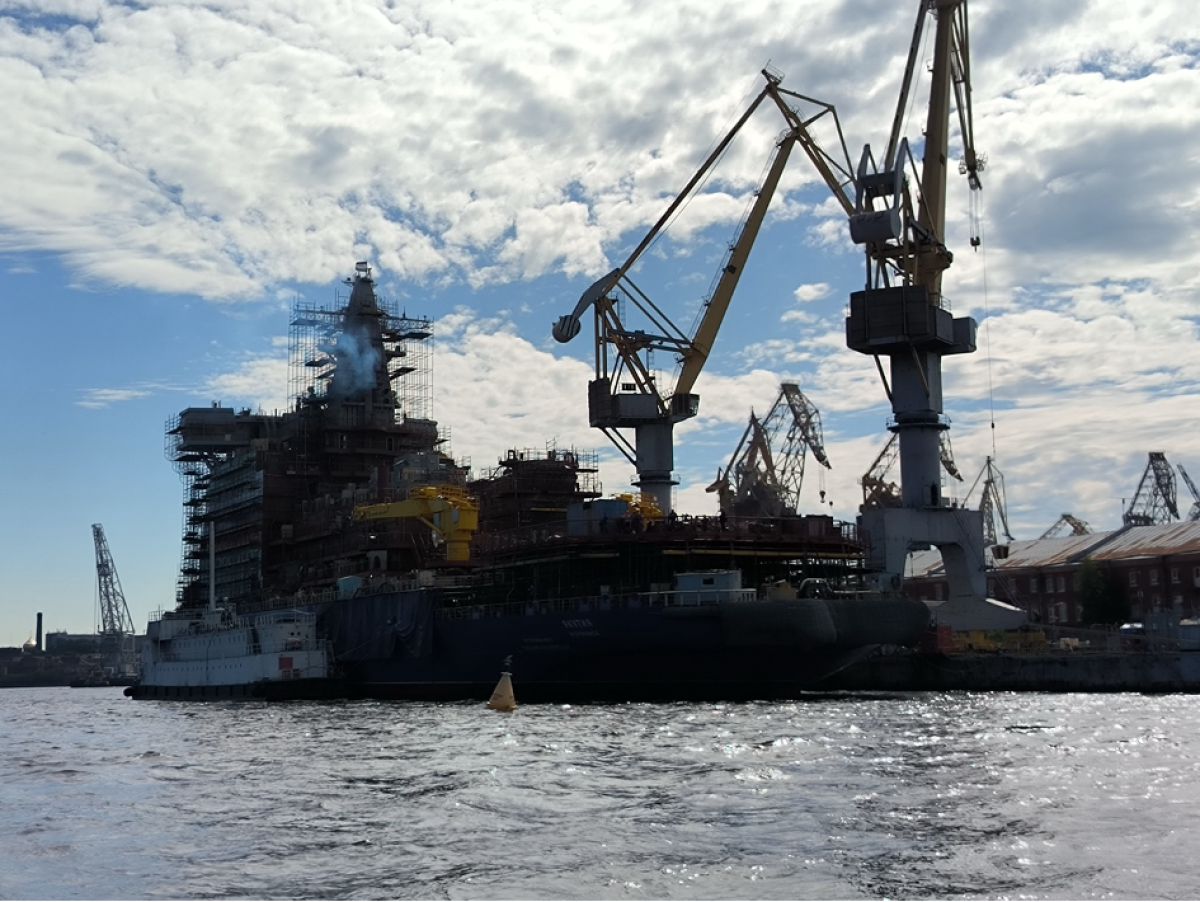
But behind the scene, my trip became a journey into the center of escalation. I felt that more and more people are wondering what the Germans are doing and becoming increasingly angry. So far, Russians separate neatly between the German people and their government. But meanwhile, they are becoming more and more sceptical: We have forgiven them for the 27 million dead in the Great Patriotic War – and now, we see German tanks in the Donbas. We allowed them to re-unify, and some years later, they have forgotten all peace promises of the so-called „2+4-Treaty“. We drew back our troops completely, and today, they dislocated German troops in the Baltic, a violation of the NATO-Russia Act. What have we done to these Germans? Today, they exclude Russians, who bore the brunt of the war, from the celebrations commemorating the victory over Hitler.
Was Marshal Shukow possibly right with the sentence he is said to have uttered shortly after World War II: „We liberated the Germans from fascism; they will never forgive us for that.“
Harassment at the Border Crossing
I took the bus from Berlin to Kaliningrad, from where I intended to book a flight to St. Petersburg. After an overnight journey of 8 hours, the first remarkable experience was the harassment at the Polish-Russian border. Of course, the bus passengers didn’t have to wait for six or seven hours like the car drivers. But after a waiting time of two hours, Polish customs officers told us to stand in a line and to present our passports. Then, they checked the identity of all Russian travelers and photographed them. Afterwards, one after the other was called to the counter. There, we had to hand over the passport and were asked for the complete name. Many travelers were unfamiliar with the procedure, did not speak Polish, and they were bossed around: we don’t want you Russians right here, leave and go home, behind the new iron curtain.
Last June, I crossed the border between Narva and Ivangorod in Estonia. At the Estonian border, customs officials closed the border for no clear reason. 300 people including small children had to camp outside with no toilets and no showers for several days. A handicapped woman in a wheel chair, a young Russian and me, we decided on the spur of a moment to hire a private driver who brought us to the border crossing 250 kilometers south near Vöru, where we got to the Russian side after midnight and then took the night bus from Pskow to St. Petersburg. Targeted harassment all over the map.
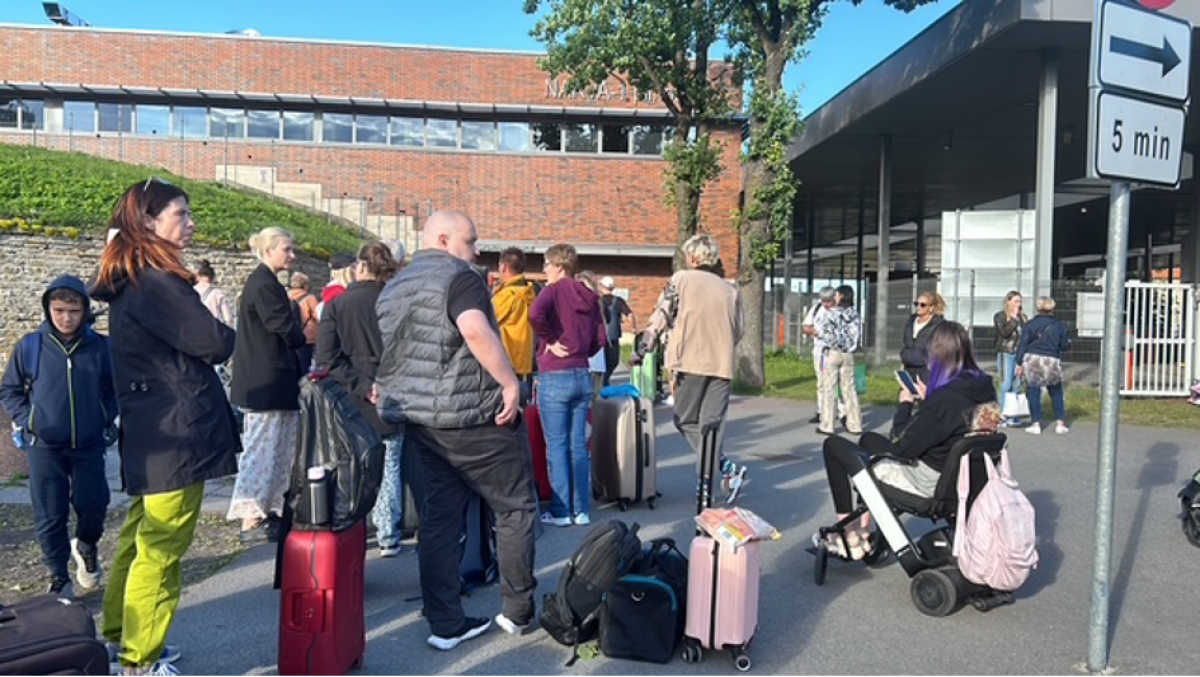
Two hours later at Russian customs, another surprise. For security reasons, everybody who had a Ukraine visa or stamp in the passport was questioned. Some travellers were older Russian Germans, had worked in Ukraine or visited relatives there years ago. They tried to hide their fears: Will be we sent back? Like the older woman who told me that she was born in Berdyansk in the Zaporizhzhia Oblast, and later emigrated to Germany. She planned to visit her sister, who is still living in the war zone: „Every day, we’re trying to talk by phone, and almost every day, she’s under fire, and I can hear grenade explosions in the background through the receiver. Then I’m shouting: Are you still there? She’s often hiding in the bathtub, the packed bag over her face, but she doesn’t want to leave. She says: I was born right here, I’ve spent my entire life here, what would I do elsewhere? Through tears, I always wish her good luck, that she may take care of herself.“ But such Ukraine terror against civilians and Ukraine war crimes, killings and tortures in the Kursk region are not reported by the Western press. Saying goodbye at Kaliningrad bus station just around noon, we waved to each other.
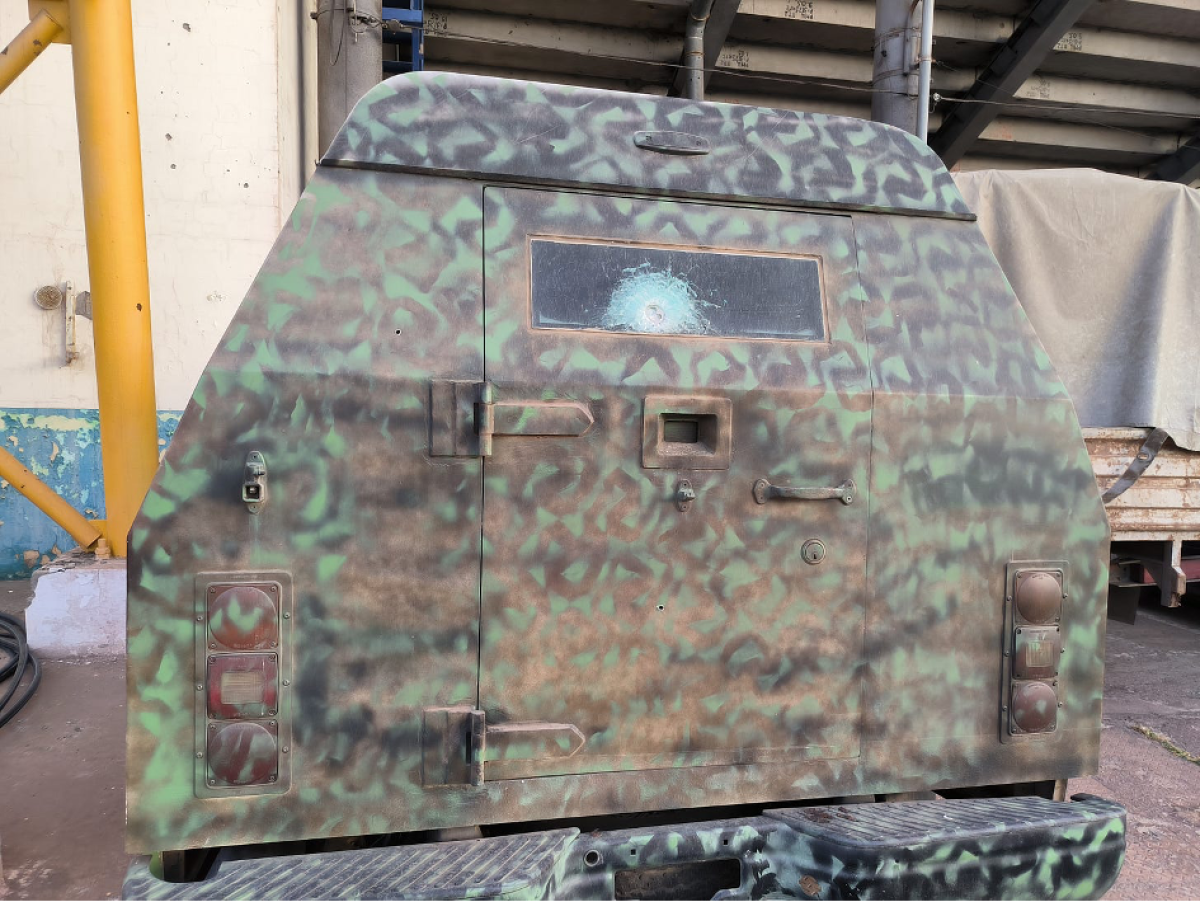
A middle-aged blonde, who is working in Berlin and visiting her parents in Kaliningrad oblast every three weeks, helped me find a taxi to the hotel. For some reasan, my Russian taxi-app didn’t work anymore. „My parents are old and in need of care, and during my visits, I’m cleaning and shopping for them, and making up the garden. But my father is often unpleasant, he cannot understand that it is impossible for me to come around every week. I’m a working woman, I can’t stand the journey’s hardships, and afford the tickets!“
Meanwhile, Poland, Scandinavian and Baltic countries announced to close their borders to Russia completely. As a consequence, the only passage left to Moscow, St. Petersburg or Kaliningrad would be via Istanbul, Belgrade or Baku by aircraft, and that makes the trip much more expensive. I went on talking to my fellow traveller in her fifties, and she said: „This is something my father, suffering of dementia, cannot understand: I can‘t afford to visit him every week, and I don’t know how paying the ticket prizes for stopover flights in the possible future!“ That is Europe today: a split for those who have nothing to do with the Ukraine war.
The reason for these sanctions and these harassment tactics, so it seems: NATO political elites intend to cut all personal relations between Western and Russian people. Every human contact must be destroyed so that the propaganda, the warmongering and all the russophobia spread by Western media can find an easier way into the hearts and minds of the Western population. Nobody should be allowed to learn that Russians are just as peace-loving people like we are.
Boom despite War
But Western elites probably fear a much more dangerous threat to loyalty of Western voters and taxpayers: many Berliners visiting Kaliningrad, St. Petersburg, or Moscow would notice that Russian cities are much cleaner than the German capital today, the metro comes unlike in their hometown on time and with a tight schedule, and the number of beggars and homeless people has decreased dramatically, while in Germany it has never been higher.
In Russia, you can see at every turn that the country is on the move. Even if at a low level, living conditions have been improving slowly for almost two decades. The economy is growing by 3 to 4 percent of Gross Domestic Product every year. Probably, Vladimir Putin is not the president of the hearts. But he delivers results – that’s the secret of his popularity.
At the same time, German economy is shrinking, consumer prizes are rising, large groups of the population are becoming impoverished, businesses are closing or moving away, and deindustrialization is in full swing. According to the CEO of the lender JPMorgan Chase, Jamie Dimon, Europe lost it’s international competitiveness: „Europe has declined from 90 percent of U.S. GDP to 65 percent within 10 or 15 years." Most young people in Russia are setting personal goals, developing ambition, seeking to get ahead. Young people in Germany are often waiting for their parent’s money and stay lost in whining frustration, feeling threatened by microaggressions.
Nowhere else can Russia’s upswing be better observed than at the St. Petersburg International Economic Forum, that takes place regularly at the end of June. This year, more than 20,000 visitors from all over the world joined the meetings and discussions – except from the United States and Western Europe. Nowhere else can be seen so clearly: the power of world economy is shifting more and more to the East, Russia is pursuing its turn to Asia, and in almost every conversation, common projects and investments are at stake. The West may be united – but it’s divided from the rest oft he world, and on a global scale, the West is a minority, getting weaker and weaker in economic terms.
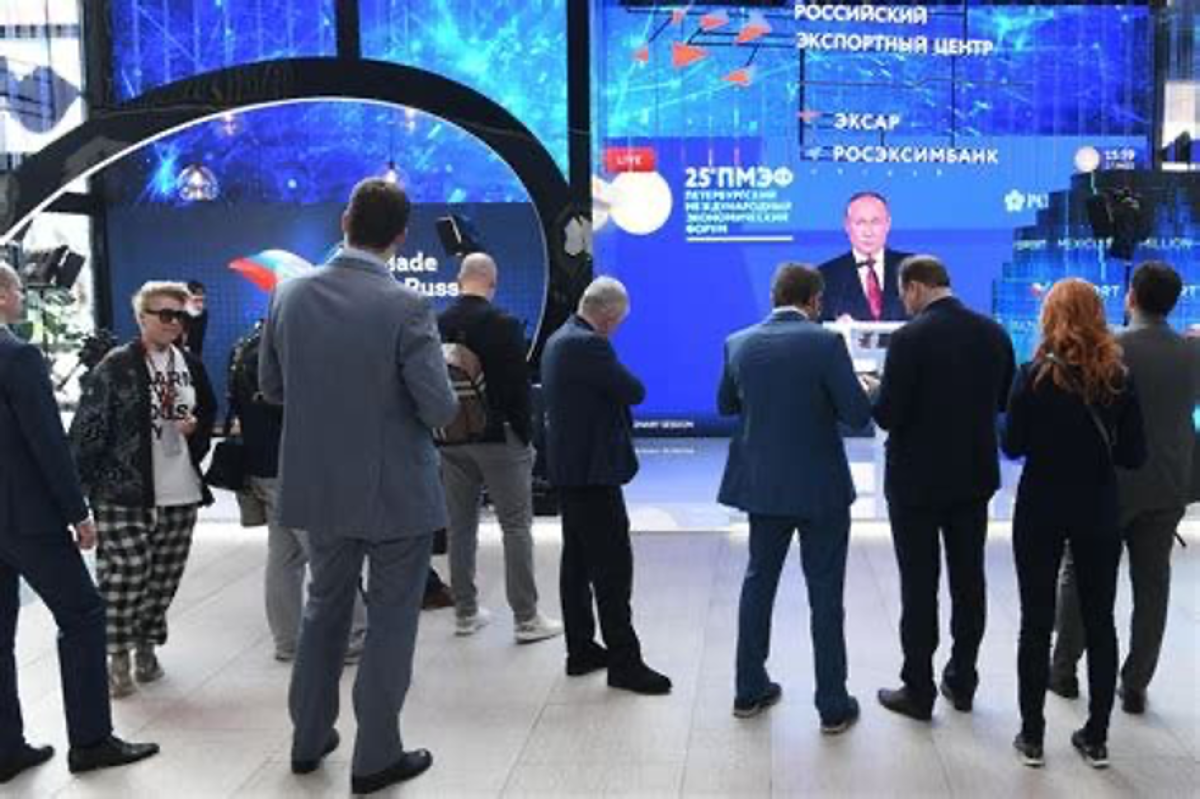
Russia on the other hand is fully integrated in the world economy, having trade relations with most countries in Africa, Asia and the Americas. Only about 40 countries are joining the West‘s sanctions on Russia; but more than 150 states of a total of 193 in the United Nations General Assembly are trading and dealing with the biggest country on earth. This shows that the USA and their European vasalls are not dominating the world economy anymore. That’s one reason why the Western sanctions don’t work and became a boomerang destroying especially the European economies in a suicidal way. The other reason is, that Russia has been experienced sanctions since the admission of Crimea following the Maidan coup in 2014, and had enough time to weatherproof its economy.
The old financial hotspots, the City of London and the Wall Street, are slowly losing power, the new hotspots are Singapore and Hongkong. More and more parts of the trade between Russia, China, India and other countries are not processed and financed on a basis of the US-Dollar anymore, but in national currencies. That means: the economic sponge that absorbs the dollar worldwide is getting smaller and smaller.
So, the United States will have more and more problems exporting their own inflation by printing dollars, and financing the government‘s budget with this huge amount of military spending in order to dominate the world. That means, in terms of economic growth, by continuing the Ukraine war, sanctioning Russia and threatening other countries with tariffs, the West is accelerating its own decline. Of course this process will last about one hundred years, but Washington and ist vasalls are in full downfall. NATO is trying to stop this global shift by using military means, destroying the international law, starting illegal wars all over the map in Serbia, Iraq, Libya, Syria, Iran, orchestrating regime changes and coup d’états in the Americas, in Africa and the Caucasian countries. But that only shows: NATO countries are unable to manage the change by taming the tiger. In the end, the West will overstretch its forces, and sink into the flood like the Roman Empire almost two milleniums before.
Signs of Escalation
Heading north by car in Karelia, we drove on a highway that was in Soviet times a „closed road“: nobody was allowed to use this straight street except military vehicles, and you couldn’t find the expressway on the map. The road had many potholes, although, as our Russian friends reported, it is constantly being repaired. „That’s why so many heavy trucks are rolling north, watch them carefully, most of these cars are transporting building materials, especially concrete, and they all are turning onto sandy paths leading into the forest beside the road.“
In fact, the trucks were turning off the road, usually stopping at a barrier or a checkpoint, were waved through, and disappeared between the trees. They were transporting the concrete for building new massive missile silos under the canopy of Karelian leaves and conifers. Without knowing it before, we reached the heart of the New Cold War’s escalation process. These new mid-range missiles are directed towards central Europe, and they can all be equipped with nuclear warheads. The Russian Federation is deploying new medium range missiles to reenforce its second strike capability.
About seven hundred kilometers west, in Lithuania, Germany has its 45th tank brigade put into service, up from 2027 with 5,000 soldiers. Billions of Euros are being invested, and a German officer says, that this all shows that we‘ll stay for the next 20 years.
But according to Bundeswehr soldiers on the ground, the locals don’t want to speak with them and are turning a blind eye: the older ones can still remember German uniforms and the faces of the Nazi murderers. The younger ones know exactly that these soldiers can very likely bring a new war to the Baltic, and in nightmares, they imagine their own country as a new killing field. Especially by the Russian minority in all three Baltic countries – almost a third of the population - German soldiers are not perceived as protectors, but as messengers from hell.
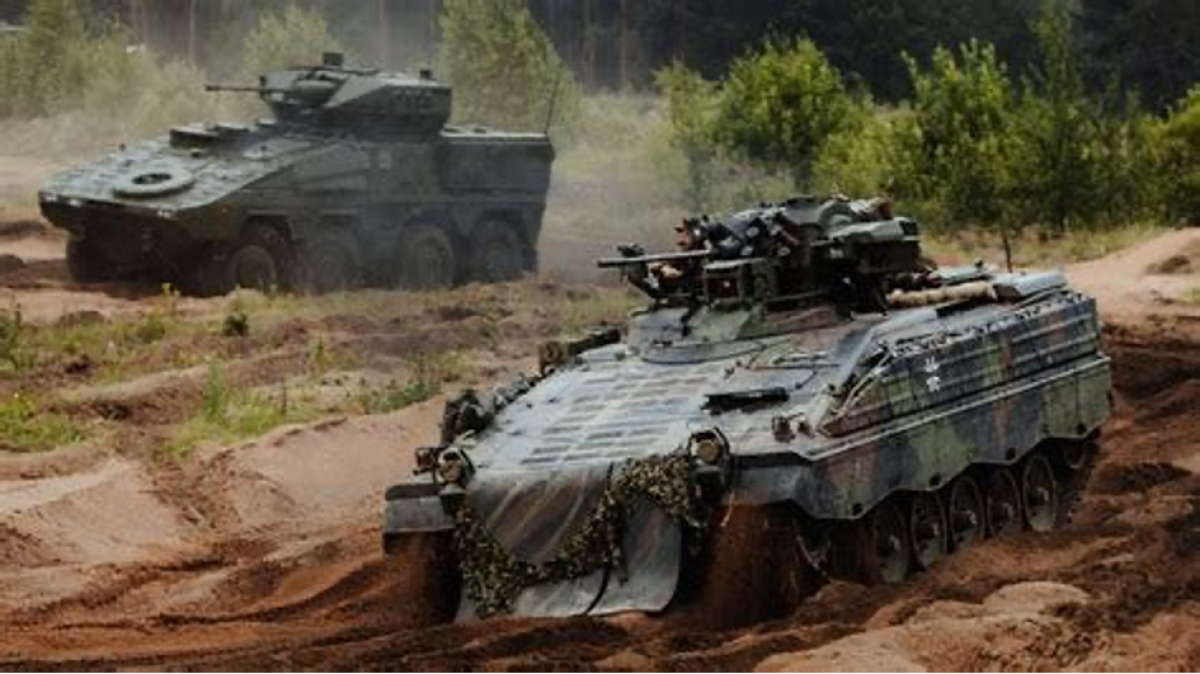
Added to this are the drone attacks not only on Moscow, but now also on St. Petersburg. Recently, Pulkovo Airport was closed for almost an entire day due to a drone alert. Internally, it is assumed that these drones are being guided to their targets from Estonia. Publicly, Moscow is holding back because it fears a NATO trap: if Russia strikes back against NATO member Estonia, the West can blame Russia and officially drag the European NATO partners into the war, which Moscow wants to avoid at all cost.
In this high-stakes environment, President Trump’s recent pronouncements threatening direct military action against both Moscow and Beijing are being scrutinized through a lens of strategic calculus. Intelligence analysts and foreign policy experts warn that if these threats are taken at face value, they could trigger defensive mobilizations or even preemptive moves. The core dilemma is thus one of credibility versus control. Trump’s threats may be intended to deter aggression through sheer force of rhetoric, but they also risk reducing the space for diplomacy, crisis management, and de-escalation. In an age of interlinked deterrence systems and lightning-fast military technologies, the margin for error is dangerously small.
What NATO and Bundeswehr media releases present as a reinforcement of deterrence against Russian aggression, looks in Moscow’s perspective like a threat in a long row of broken promises and illegal wars of the West. That’s the so-called security dilemma: If one side is arming itself more and more, the other side feels threatened more and more and is starting to re-arm more and more, then, the other side feels threatened more and more and is re-enforcing its own armament again. As history shows, this leads into new wars.
The only way to escape the security dilemma could be created by disarmament negotiations, confidence-building measures and compliance with agreements. But this is exactly what NATO doesn‘t want to do. The leading power of the Western alliance is the United States. Washington orchestrated this process of fraud, contract violations, coups d'état, and wars of aggression contrary to international law. The outcome is: International law was replaced by the law of the jungle, clandestine operations, and an atmosphere of distrust between the leaders of the great powers. That’s exactly the situation we have to face right now, and these are the elements of a new armed conflict. In this emerging global game of chicken, the risks are existential and the world is left holding its breath, hoping that no side blinks the wrong way.
On this global chessboard, the transatlantic split is a myth. On the one hand, President Trump is increasingly under pressure from the Neocons in the Republican party and in the security apparatus. This forces him to adapt his policies to the deep state, which is dominated by Neocons and wants to continue the war against Russia in Ukraine. On the other hand, the anticipatory obedience of transatlantically corrupted elites in Europe has entered a phase of ass-kissing.
What we see in the relationship of the USA and the Europeans is not a conflict of different strategic goals but a sort of labor division or job sharing. According to Nel Bonilla, a researcher in conflict studies, „defense budgets on both sides of the Atlantic are rising in lock-step, security doctrines share the same PowerPoint slides, and the EU, a supposed pacifist haven, today accounts for a bigger slice of world military spending than Russia and China combined. The rift is rhetorical. The convergence is material, and it is financed by the slow bleed of social programs at home.“
The narrative goes: in order to fight for our liberal, open, and democratic values, we have to build up military strength, because of the looming threat from so-called authoritarian regimes. But this independence rhetoric doesn’t break with US strategic priorities but serves the continued dependence on the hegemon and captures its interest in an excellent way.
Washington is intending to increase military and economic pressure on China and complete the Neocon’s plan of regime change of seven countries in the Middle East: Iraq, Lybia, Syria, Lebanon, Somalia, Sudan, Iran. Recently in Iran, the project failed. The illegal attack of the Israeli Defense Forces couldn’t manage to destroy Tehran’s nuclear enrichment plants completely and provoke a collapse of the regime, while facing a massive Iranian counterstrike hitting Israel seriously. But tomorrow is another day.
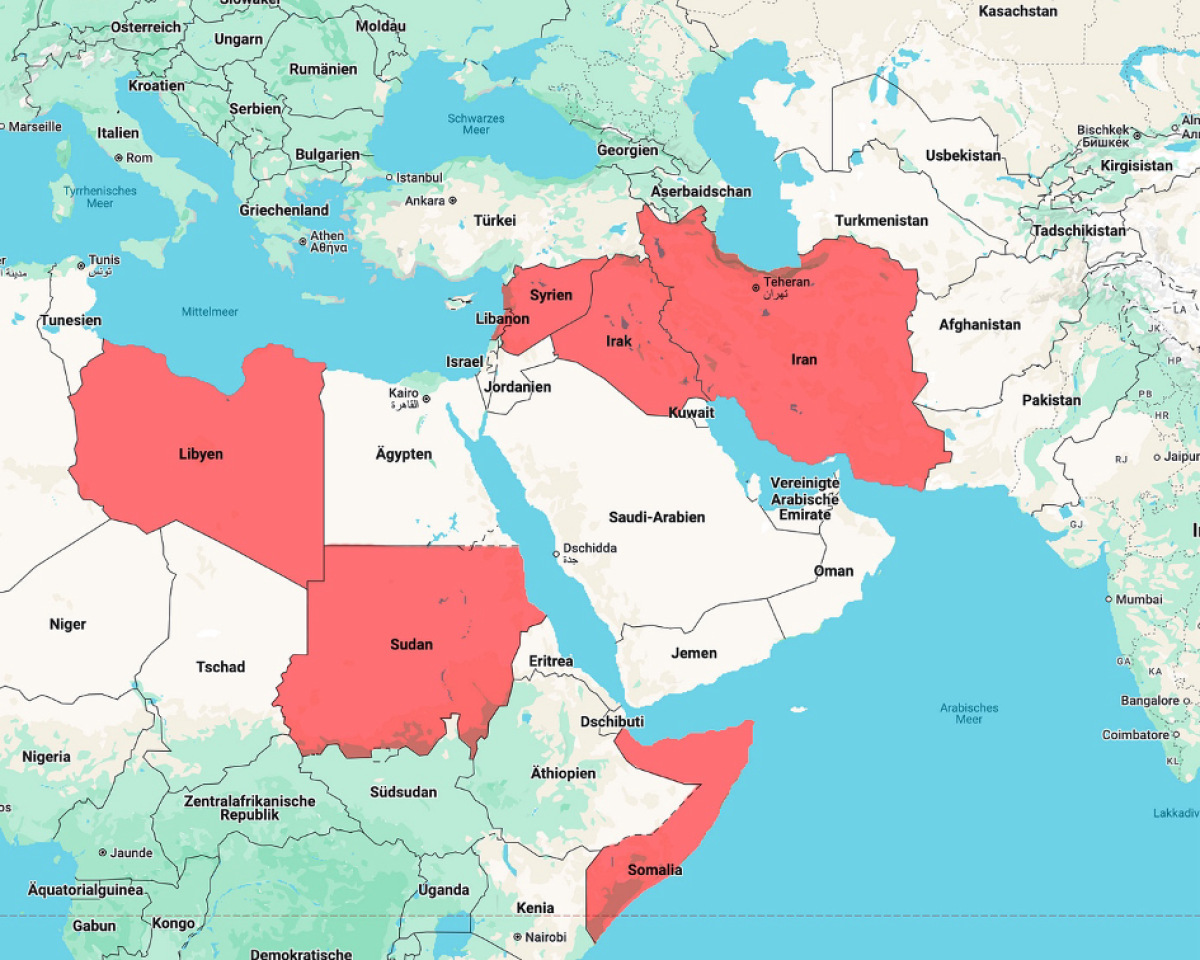
International law has been destroyed by the West. Now spheres of influence are being staked out: that’s America’s claim, with Europe, Japan, South Korea, the Americas, Greenland and Canada; the other areas are battle zones where Russia’s and China‘s influence must be contained. Obviously in consultation with Washington, the former German foreign secretary Annalena Baerbock was deployed as President of the UN-General Assembly to make sure that the interests of the majority were blocked and the United Nations paralyzed. Transatlantic corrupt elites are used as proxies enforcing the policies of the United States.
All over the map, the fight between the hegemon of a unipolar world and its vasalls, and the BRICS states striving for a multipolar world will go on.
For more than two decades, the United States began to make Ukraine an American colony up from the so-called „Orange Revolution“ in 2004. The Brits and the EU countries wanted to play the role of beneficiaries in a kind of free-riding imperialism. But the West under-estimated Russia‘s military power and determination.
Now, Washington didn’t manage to get through and the Trump administration is planning to europeanize the Ukraine war. Whether Europeans want war or peace in Ukraine is their business. The weapons for never-ending wars can be bought in the U.S. Washington will write off Ukraine as a loss-making venture. The European vasalls will have to foot the bill – for the war and the reconstruction as well. The empire continues to exist, European elites are functioning as governors, and the hegemon increases the tribute for them by selling American guns, cartridges and lots of liquid natural gas. Isn’t it nice?
Back to Karelia. This region far North and the Baltic Sea are becoming more and more the next places for measuring forces. Washington wants to make the Baltic Sea a mare nostrum of NATO, by blocking Russian access to the Atlantic. Having lost the war in Ukraine for the time being, the West is opening a new front against Moscow in Scandinavia, with Sweden and Finland new members of the alliance. Preparations are being made for the next showdown.
Desperate Discussions
In Moscow, my publisher organized two discussion rounds. The first took place in a small gallery for Modern Art and was focussed on the living conditions of Ukraine people, the current situation at the frontline and the perspectives of peace in Europe. A lot of media joined the evening: TASS, Gazeta, Russia Today and „Papotschka Kanzlera“, an audiovisual Telgram channel covering German policy, with the anchor-woman Marina Zakamskaja. The capital’s audience showed deep interest, was well informed and open to any well-reasoned argument. What a difference to Berlin, where many discussions are disrupted by pro-Ukrainian warmongers and pro-NATO provocateurs, the debates become usually highly emotional and the ground for a reasonable exchange of ideas is often lost.

This modern stupidity and regression in Western thinking fits exactly the cognitive warfare of NATO, which targets people's thoughts and feelings and represents an attack on the human brain. Fears and emotions are mobilized in order to push resentment like a curtain in front of reason and therefore cloud thinking: A game based on the realization that highly intelligent people behave like madmen when emotional resistance overpowers their mind.
What remains is the impression: Russian participants are concerned with insights, while German audience is concerned with confessions - in Moscow enlightenment, in Berlin resentment. The West arrived in the age of counter-enlightenment. How low Germany has sunk!
Then, I discussed at the Europe Institute of the Russian Academy of Science on the topic „Germany qua vadis?“. A lot of students and Russian historians joined the debate, all well dressed and well informed, prepared for a serious discussion. The speeches were mostly focussed on one point: how to re-vitalize German-Russian relationships and how to re-start a process leading to a pan-European security architecture from Lisbon to Wladiwostok? It also became a look back in anger.
The result was always: Washington doesn’t want to respect Russian security interest, the US want to weaken and unbalance Russia, as the RAND corporation wrote, European countries are committing suicide, and the Western hegemon wants to provoke a regime change in Russia. Exactly this is not acceptable for the Russian government and almost every Russian as well.
In Russia, the British geographer Halfort Mackinder is well-known: “Who rules Eastern Europe commands the Heartland, who rules the Heartland commands the World Island, who rules the World Island commands the World.” Mackinder formulated his theory up from 1904, firstly in the Royal Geographic Society in London, and after the Second World War, American geopolitical thinkers like Zbigniew Brzezinski clarified this theory. All current American foreign policy is based on the idea that a great sea power can only be dominant by splitting up the Eurasian landmass. In the words of Lord Ismay, the first Secretary General of the NATO, the alliance was created to „keep the Soviet Union out, the Americans in, and the Germans down.“ Of course, this political approach survived the Soviet Union and has been very successful.
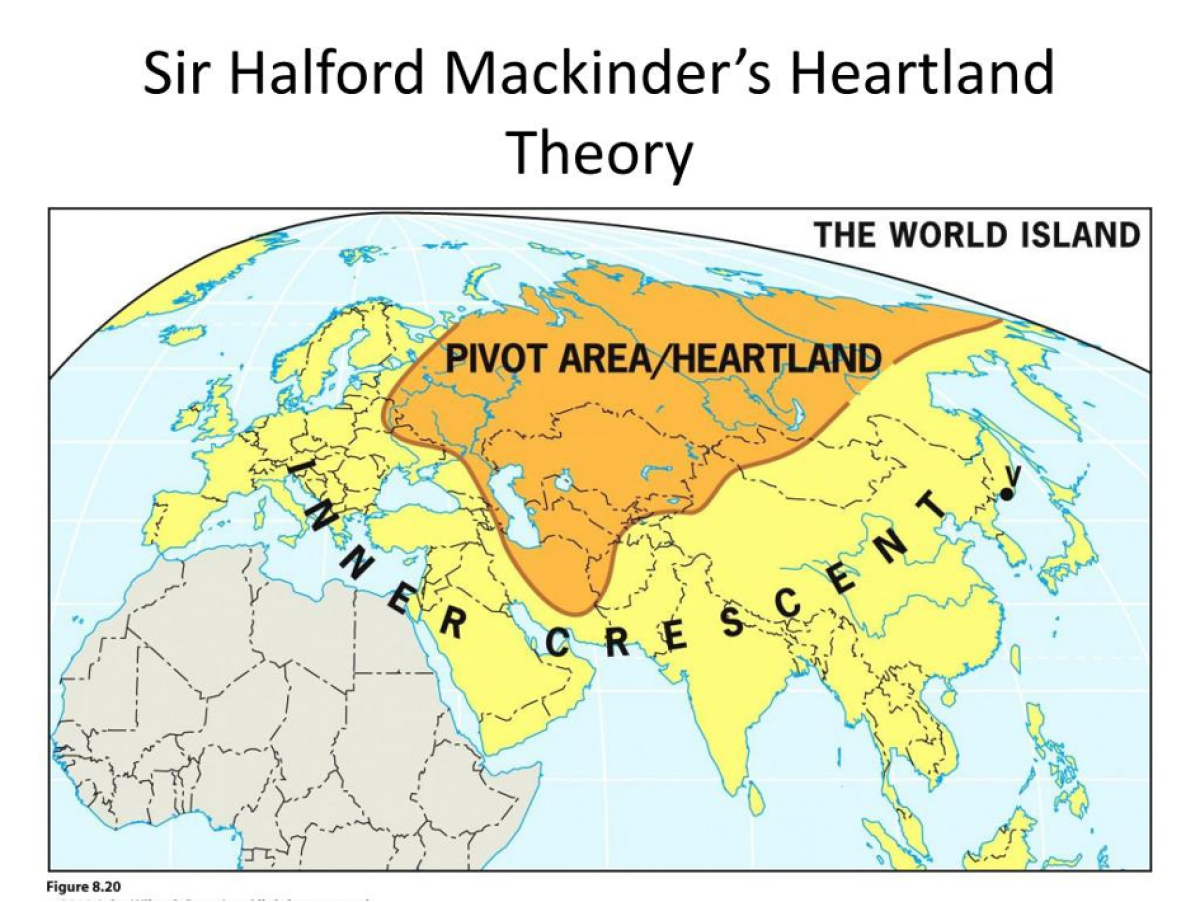
Almost every speaker in Moscow demanded a new European peace architecture, including Russia and in distance to American interests. At the horizon, the concrete utopia of an independent Europe shows up that is not reduced as a slave of Washington, outsourcing the cost of U.S. imperialism, instead returning to Otto von Bismarck: „If Russia and Germany are friends, Europe is doing well.“
After all, we are eye witnesses of the struggle between the concept of a unipolar world with an American hegemon and the forces around Russia and China that prefer a multipolar world in their own interest. The first concept means, that the hegemon is setting the rules and forcing everybody by military power to follow these rules, as the Greece author Thucydides wrote in his history of the Pelopponesian War: „The strong do what they want, and the weak endure what they must.“ In contrast, the multipolar concept means that the great powers have to negotiate the rules and have to cut a widely accepted deal. Even if, in Thucydides, the superior Athenians ultimately destroy the weaker Melians, the multipolar concept can claim counterfactual validity. And we haven‘t yet reached the end of history.
Body Count under Birch Trees
Coming far up North, we saw the cemeteries with fresh graves under Russian flags, often decorated with the black and orange St. George’s ribbon, a sign of victory in the Great Patriotic War. The so-called Special Military Operation hasn’t hardly arrived in the big cities, where you often can see only the advertisement for military conscriptions, but far stronger in Karelia and Dagestan, and all the other areas in the periphery, where the poorer ones live and the temptation to conscript for money seems greater.
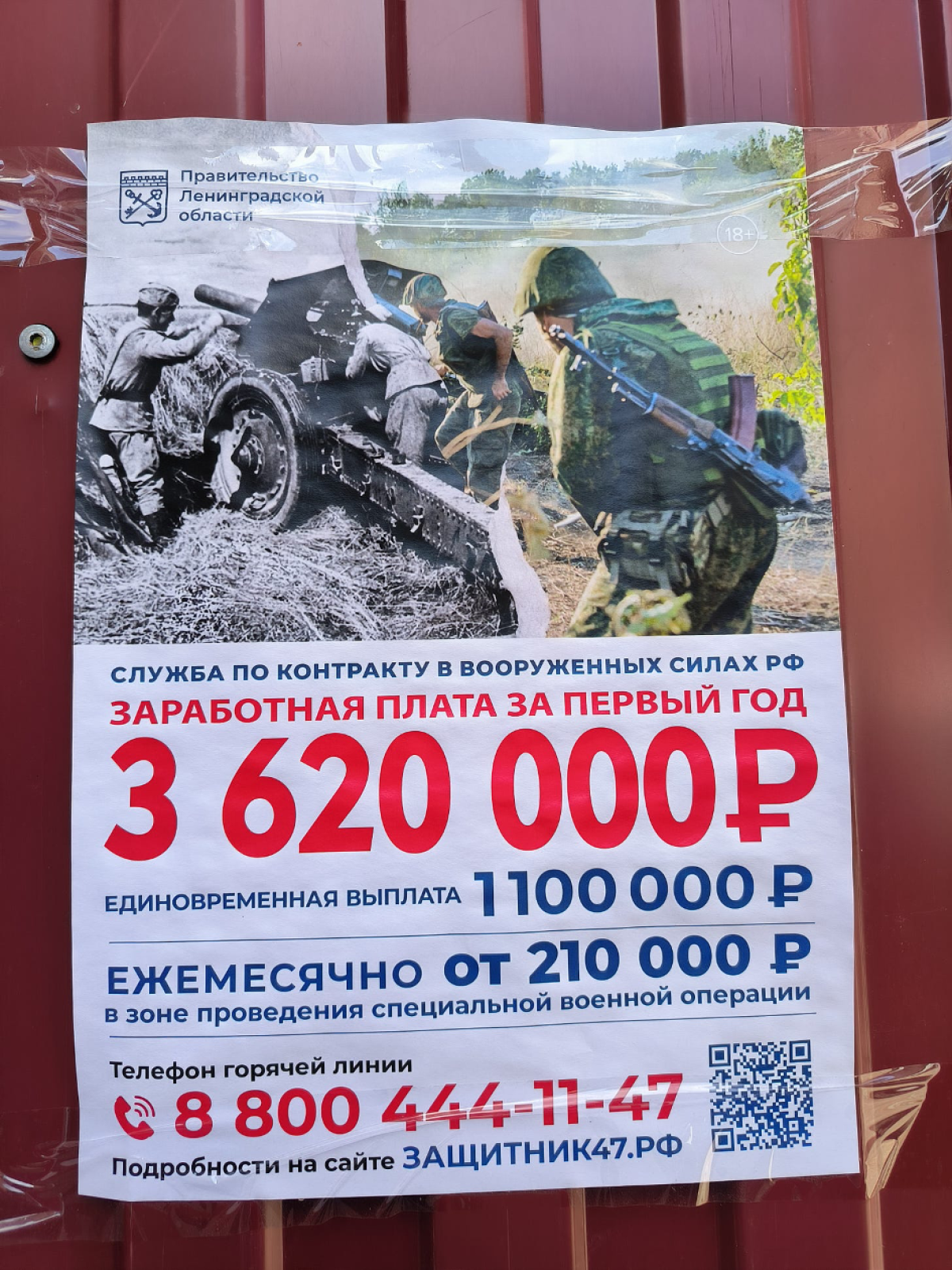
A study of the U.S. Center for Strategic and International Studies published in June 2025, counts 1.4 million dead bodies overall in the Ukraine war. Although the real numbers are on both sides strictly confidential, most casualties are counted on the Ukrainian side, because Ukraine Armed Forces are inferior in terms of artillery, missiles, drones, and manpower. But this horror is apparently not yet enough: Washington wants the Europeans to maintain and to overtake the pressure on Russia, while turning itself to other war theaters in the Middle East and in the Street of Taiwan. We deliver the weapons, you deliver the bodies – this cynical game of proxy wars will continue. When Ukraine is bled dry and can no longer fight, Germany will be pushed into trenches. The time is not far off when the order will be given again: Germans to the front!
But the irony of history is: the more the West is fighting with military means against its own decline, the harder this downfall will accelerate - too much armor, but less brain. At the end of the show, Europe will become a backyard of the United States – and a backyard of Russia as well.
There is another aspect I won’t forget. Not everyone is against this war, otherwise it would have been over long ago, it even wouldn’t have started. Those who do not have to go to the front and who profit from the war are in favor of it. As Rosa Luxemburg wrote: „Dividends are rising, and the proletarians are falling.“
Also in this point, the transatlantic split is a myth. On both sides of the Atlantic, there are a lot of profiteers in the military industrial complex and the financial industry, but for the Americans, it is a proxy war, far out in Europe, and only Europeans are dying. But for the Europeans, this is Russian Roulette, and we all are the stakes. 450 million lives in the EU – all in.
Capitalism is an economy driven by profit, that always has to grant loans to keep the system running. And for granting new loans, new collateral is needed. New securities mean new profit prospects: oil and gas reserves, minerals, black soil, cheap labor, more efficient manufactoring processes, new sales markets. It’s an endless fight toward tendency falling profit rates – and a Ponzi scheme. After the financial crisis in the year 2008, central banks made the collapsing system survive by printing money and pumping fresh capital into the economic circulation. But the prize is a permanent crisis. The corpse of financial capitalism is being kept alive artificially, like a patient on a heart-lung machine.
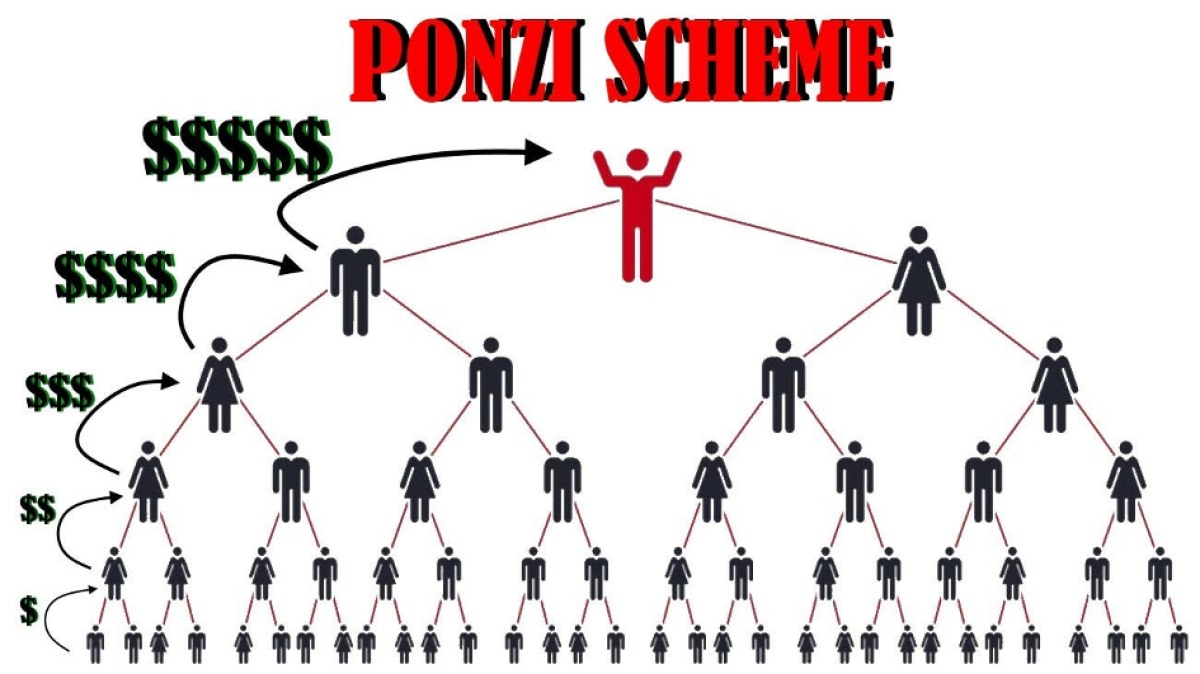
Now, the Europeans are under double pressure, in a kind of sandwich position: The Russian Army and the Donbas militias stopped its expansion towards East and its greed for new collateral to stabilize their banking system and economy. And at the same time, the US hegemon has eliminated Europe as an economic competitor – by blowing up the Nordstream pipeline, forcing the allies to increase military spending in favor of American companies, and as a result of the suicidal sanctions against Russia. This explains why the European elites are acting as particularly aggressive warmongers – for them, it’s a question of their own survival. They have maneuvered their own countries into a dead end, and they can’t turn the ride without being held responsible for their wrong decisions. They would perish with the collapsing financial capitalism.
The West’s temporary defeat in the Ukraine war has temporarily halted the drive for expansion. But the struggle to destroy and economically exploit Russia will continue on other frontlines. Every hidden place on earth must get involved in the profit machine. For the time being, the exploitation rate of dependent employees and the middle class must be ramped up. The never ending war between the declining unipolar and the rising multipolar world is also a class war – a war against the majority of hard working people in the Western metropolises. The rich fight the poor, capital fights labor, the US fights their European vasalls and both the rest of the world – a rat race for profit.
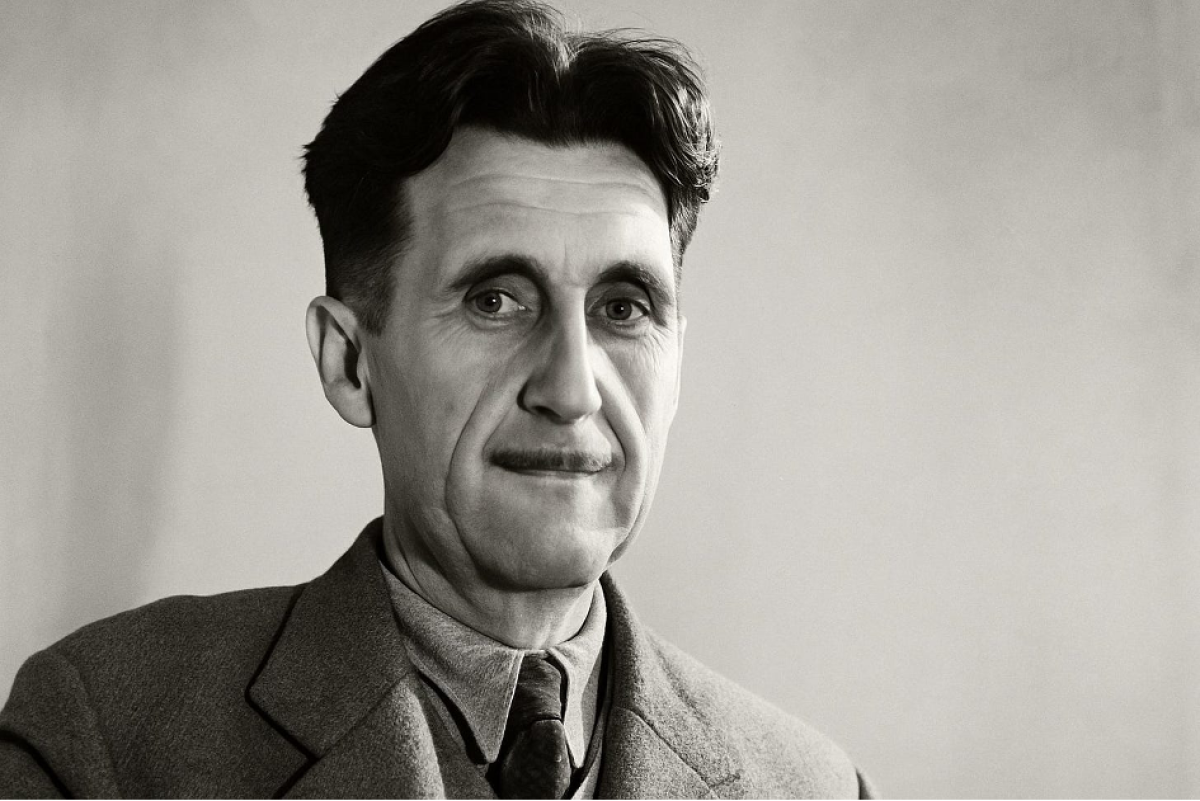
George Orwell wrote in his dystopic novel „1984“ in wise foresight: „the war, therefore, if we judge it by the standards of previous wars, is merely an imposture. It is like the battles between certain ruminant animals whose horns are set at such an angle that they are incapable of hurting one another. But though it is unreal it is not meaningless. It eats up the surplus of consumable goods, and it helps to preserve the special mental atmosphere that a hierarchical society needs. War, it will be seen, is now a purely internal affair. In the past, the ruling groups of all countries, although they might recognize their common interest and therefore limit the destructiveness of war, did fight against one another, and the victor always plundered the vanquished. In our own day they are not fighting against one another at all. The war is waged by each ruling group against its own subjects, and the object of the war is not to make or prevent conquests of territory, but to keep the structure of society intact. The very word ‘war’, therefore, has become misleading. It would probably be accurate to say that by becoming continuous war has ceased to exist.“ That’s why the war must go on. It’s a class struggle, and at the same time the struggle of Western imperialism against its doom. It’ll become America’s last war. We’re going to see a lot more blood.
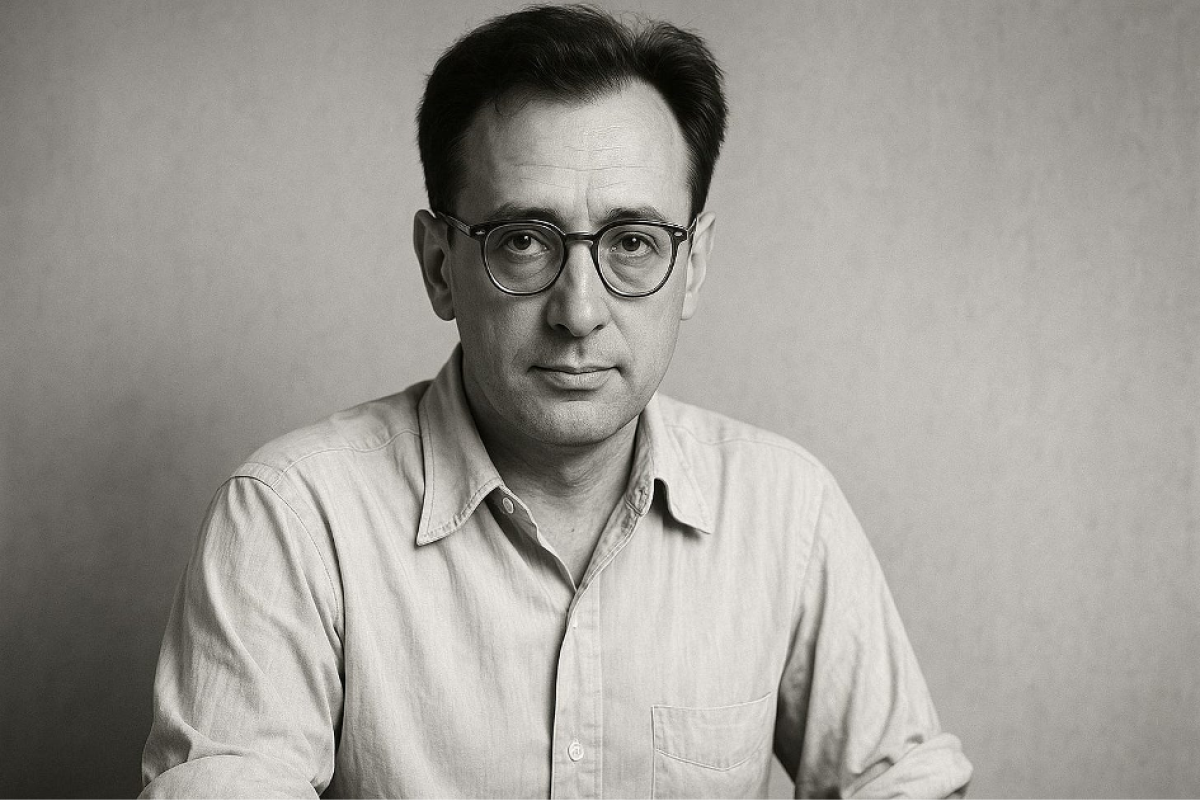
In 1942, the American writer Nelson Algren published his second novel: „Never come morning.“ Algren articulated the world of drunks, pimps, prostitutes, freaks, drug addicts, prize fighters, corrupt politicians, and hoodlums. This is the world we have arrived in, and in this show, we are the main characters. After the upcoming war, our perspective is that of halfies – street slang for legless men on wheels, to whom Algren dedicated a poem. I saw these mine invalids, lying in dirty bed sheets with their blood-soaked bandages, crying out for their mothers. That’s why I stole and modified Algren’s title.
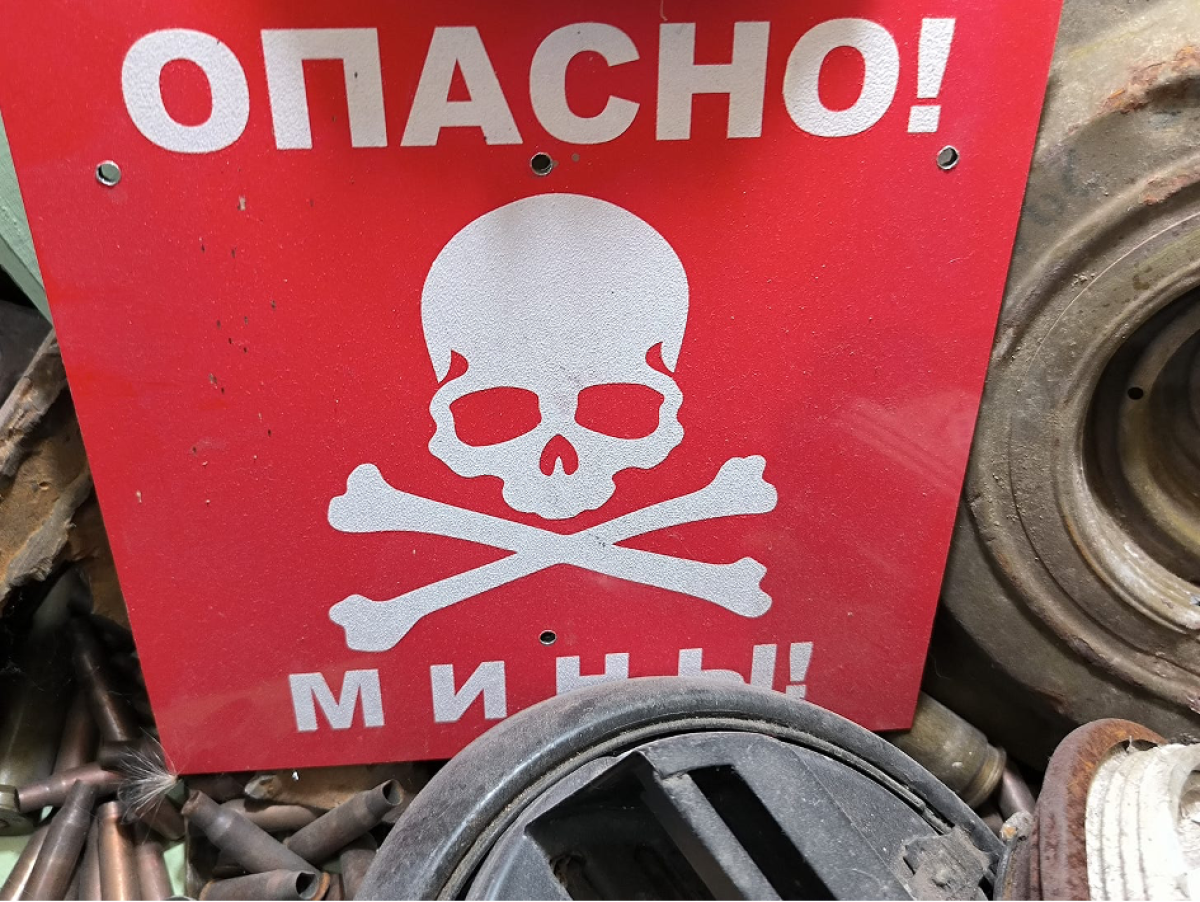
Some days later, I returned to Germany and was shocked while entering my homeland: I felt that the country was covered in a layer of mildew, exhaustion, and resignation. The German’s mind is done – a country without any opposition. That’s a sign of decay and showdown as well. Nelson Algren’s world is the world of losers - our world. The winners are abroad.
«Never come Peace»